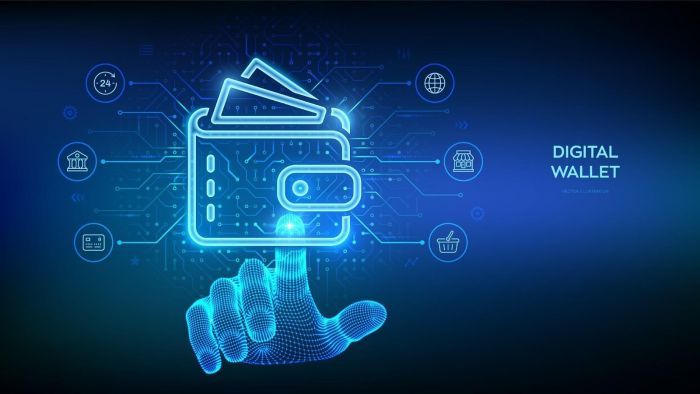Invoicing seems like a banal task, but running into cash flow issues if it goes wrong is the least of your concerns, adding to the stress of sending out invoices and waiting for payment for months on end. Billing software is an obvious way to deal with the process, enabling the user to set up recurring or partial payments, manage multiple invoices, send automatic reminders, and get paid promptly. Invoice processing can automatically generate your subsequent billing request.
Automated systems send out payment reminders and read receipts, and provide access to an extensive template library and invoicing tools to ensure timely payment. Integrating accounting software to record and track invoice receipts is recommended, along with other good invoicing practices. All-in-one billing and invoicing software comes with an accounting tool.
It pays off to do research and learn about the different kinds of software currently available on the market. Admittedly, your choice of software is just one step of the process; there is no point in investing in an expensive product when the payment method isn’t sufficiently secure.
1. A safe wallet makes billing accessible and flexible

More people are turning to digital assets for everyday transactions, and crypto billing has become a straightforward way to issue invoices in Bitcoin, Ethereum, or stablecoins. These invoices outline the amount due, include a QR code for quick scanning, and list the wallet address where the payment should be sent. The payer completes the transfer from their own wallet, with the transaction settling directly on the blockchain rather than through a bank. To follow this process, it helps to understand what a crypto wallet is. A crypto wallet is the tool that holds the keys to your digital assets and lets you approve each transaction securely.
Typically, the workflow involves a crypto payment gateway or dedicated billing software. A gateway supports stablecoins and other cryptocurrencies, which broadens the range of assets businesses can accept. These platforms track payment status, generate organized invoices, manage wallet addresses, and offer optional conversion to traditional currency. Some tools also allow users to save payment methods for recurring billing or future charges. For simpler needs, creating a manual invoice with the necessary wallet information remains a practical option.
At checkout, customers usually choose how they want to pay, whether in fiat currencies or supported cryptocurrencies. This flexibility makes the payment experience easier and removes some of the friction found in traditional methods. Crypto billing is also widely accessible because it bypasses geographic and banking limitations, allowing parties to send and receive payments without dealing with currency conversions or establishing local banking relationships.
2. It ensures transparency and prevents fraud
Crypto payments run on blockchain technology, which creates security and transparency that traditional billing systems often lack. It achieves this by ensuring that each transaction is verified. Transactions are recorded in a public ledger, enabling near-instant settlement. Cryptocurrency can help prevent chargeback fraud, in which a buyer intentionally disputes a legitimate transaction through the payment processor or issuing bank. Chargeback fraud is a real risk to a commercial entity’s bottom line due to rising overhead, added fees, and other related losses.
Cryptocurrency payments are largely irreversible, eliminating the risk of fraudulent chargebacks. It is not until both parties confirm a cryptocurrency transaction that the funds are transferred; until then, they are held in an escrow smart contract. Furthermore, crypto has no credit card fees, and you’re never in the situation where the counterparty or mediator holds your cash for weeks on end while they investigate something they can’t disclose. Yet, the core principle of transparency is compromised in the absence of a safe wallet, which makes choosing one of paramount importance.
3. Easy integration with billing software
Crypto transaction volume increased by approximately 50% in the US between January and July 2025 year-on-year, exceeding $1 trillion and cementing the US’s position as the world’s largest crypto market in absolute terms. This growth is also part of a sustained trend in other parts of the world. South Asia was the most rapidly growing region in this period in terms of crypto adoption, recording year-on-year growth of 80% and reaching the impressive transaction volume of $300 billion.
This tendency extends to stablecoins, which are a popular choice for those who opt for digital asset transactions. According to TRM Labs, the value of stablecoin transactions increased by 83% between July 2024 and July 2025, reaching an annual peak of $4 trillion in the first six months of this year. The share of major stablecoins in the market grew by 52% over the same period, underscoring their rising importance in the crypto landscape.
Evidently, cryptocurrency transactions are here to stay, and a safe wallet mitigates concerns about complications. Modern wallets and payment processors can integrate with Stripe-style APIs, invoicing platforms such as QuickBooks and Zoho, and custom enterprise systems, enabling you to issue and track invoices automatically. On the other hand, traditional payment systems continue to struggle with high fees, long settlement periods, and cross-border friction.
Cryptocurrency billing addresses these issues by building a blockchain-based, decentralized payment infrastructure that operates around the clock, all year round. It is a compelling alternative for any entity that faces excessive transaction costs or international payment delays, streamlining operations and ensuring satisfaction. Popular accounting platform marketplaces offer cryptocurrency payment plugins that maintain a familiar interface for the whole team and simplify setup. Smaller operations may find periodic transaction data exports from the crypto processor into accounting software or spreadsheets sufficient.
Final thoughts
A safe crypto wallet also simplifies billing and invoicing by automating payment detection, reducing volatility issues via stablecoins, and adding a compliance layer. The last is particularly helpful because legal frameworks not only vary substantially across jurisdictions but also change and evolve. Users need to navigate a patchwork of regulations that have the potential to change arbitrarily, requiring immediate operational adjustments or creating compliance issues. APIs allow for direct communication with existing billing software, enabling financial record synchronization, automated invoice creation, and updates on payment status. Essentially, crypto wallets enable the transition of billing and invoicing from a manual, chaotic process to an efficient, scalable one.
Post Comment
Be the first to post comment!





